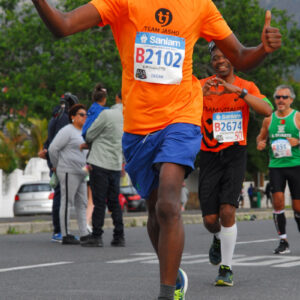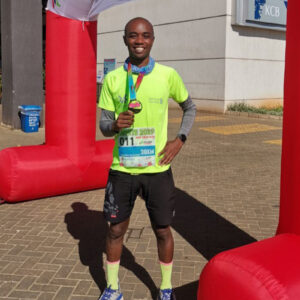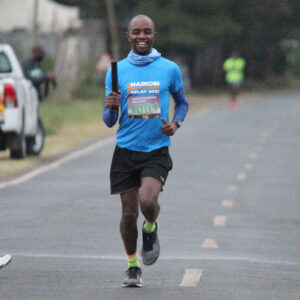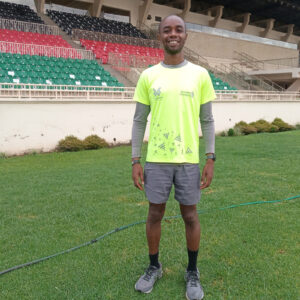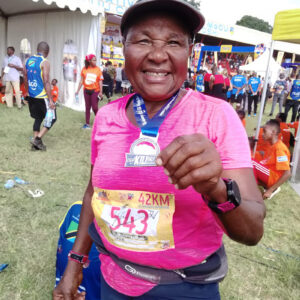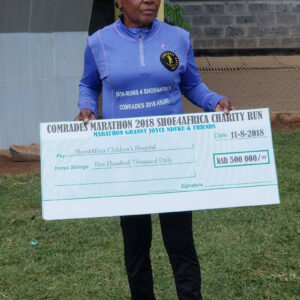When Sega Kendrick, a Nigerian Medical student and recreational runner posted this tweet, it struck a chord with so many runners myself included on Twitter and on various running WhatsApp groups where I first came across it.
A friend asked the first day I went to the gym, "what have you come to do here?"
— Kennedy Mafelo (@MafeloJr) February 21, 2022
It got me wondering, “ did we all come into running driven by the same motivations and do we all run for the same reasons?”
With my curiosity piqued, I read up on the various myths around running and why most people assume that if you are running, it’s to lose weight. Any runner who has ventured into the outskirts of the city into the rural areas has, at any one time or another, heard this question from curious villagers.
Unakimbia nini? (Why are you running? )
Beyond the literal simplicity of the inquisitiveness, there is a greater depth to that question.
So why do we run?
Findings from a 2022 survey by the running app Strava on why we start running found that there is a combination of motivators. The top five included improving one’s body image, being healthier, preventing illness or disease, managing anxiety or depression or getting stronger.
I posed this question to two runners who represent the length and breadth of Nairobi’s current community of recreational runners. What got them into running and what does it do for them?
I was also curious to hear their comments on the assumption that slim/fit people have no business running because in the words of Sega Kendrick
“What/who are they trying to lose?”
Well James, since we don’t want to lose you as a friend, keep up the pace as we run you through this.
Running for Health & Fitness
For Dedan Njeru, an IT specialist, running coach and fitness trainer living in Nairobi known in the recreational running community simply as Coach Dedan, it all began with hiking. He had just marked his 30th birthday.
“When I turned 30, I realized I needed to be more in control of my health by fitness.”
But hiking wasn’t working as effectively to his liking, mainly because he could only do it on weekends. Running on weekdays was the easiest way for him to keep fit.
He then began participating in locally organized races including the StanChart Marathon. It was not until he joined a running club that he found value in a community of runners.
“Joining the Team Jasho running club helped me become a better runner.”
For him running has now become a lifestyle.
For Joyce Nduku, known simply as Tata or “Tata the running Granny” on the global running circles, the sport ran towards her and embraced her 50-year-old self.
The year was 2004, she began having knee problems. Like most people her age, she feared the worst – Arthritis. Back then she was a medic working with KEMRI and she knew all too well about lifestyle diseases that come with old age.
To her, running was the easiest and the simplest to start. Unlike many other sports where you need a partner or to invest heavily in gear and equipment, all she got herself was a good pair of running shoes, and some lightweight clothes, and she was set.
“My family thought I was crazy. Sometimes I would be made fun of when training, especially in the slums” but she kept at it.
She soon learnt about an upcoming race and decided to work towards it.
“ I started training in August 2004, for the StanChart Marathon, it was that same year in October.”
For Tata who has been running for 18 years now, it’s the best decision she ever made. 80% of the bed occupancy in Nairobi hospitals is from lifestyle diseases she tells me.
In 2019, a national forum on Non-Communicable Diseases (NCD) revealed that more than half of the deaths (55 per cent ) in Kenya are caused by high blood pressure, heart disease, diabetes and cancer.
“It’s never too late to start, quips Tata, you can do it anywhere, morning noon or evening. All you need is yourself and a good pair of shoes.”
What does running do for you?
Health and being part of a community- the sense of belonging and connectedness are some of the major basic needs served by running according to findings from a 2021 Strava research which surveyed 25,000 athletes.
“I run because it keeps me sane. Running is my safe space no matter what is going on in life running is where I run to release. I also run for fitness.” Says Dedan.
The Kenyan community of recreational runners has grown exponentially in the last decade with Nairobi as the nexus. Running clubs have contributed greatly to this growth as they go beyond just the fitness activities to creating camaraderie among runners giving them a sense of belonging through a shared purpose.
For Tata, who was among the pioneering founders of recreational running clubs, being in a community of fellow runners is what keeps her going
“Having so many young people run with me is always so enjoyable, I always feel energised!” she tells me.
For Dedan, running helps him socialize. Being part of a running community plays a huge part in giving him a sense of belonging.
“I run for the community part of it, the running community is big you meet and interact with people.”
Travelling to Run
For many recreational runners like Dedan and Tata running has become their travel anchor. Whether locally venturing outside of Nairobi to Kisumu, Nyeri, Kakamega or Machakos, recreational running is opening up places people would never have thought existed or considered visiting in a vehicle they both tell me.
“Running has taken me to Kakamega forest, around Mt. Kenya and Kilimambogo,” Tata tells me.
In the recent past, more runners have been exploring other countries through running. Be it to Tanzania for the Kilimanjaro Marathon, Zimbabwe for the Victoria Falls Marathon, or South Africa for the Comrades Ultra or two Oceans Marathon or the Great Ethiopian Run, it has become common for Kenyans to plan their holidays to coincide with a major marathon.
For Tata who has been to South Africa thrice now, running, she tells me, has seen her do 90Kms traversing Kwa Zulu Natal, the streets of New York, Chicago, Seatle, and Boston.
“Running has done so much for my health, I can’t remember the last time I was in the hospital or took painkillers,” she tells me.
Finally, her family is seeing the benefits of running and couldn’t be more proud of their 70-year-old Tata.
